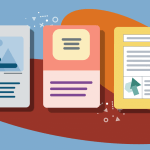Introduction.
Email marketing isn’t just a buzzword; it’s a vital part of how businesses connect with their audience today.
With billions of people using email every day, this marketing channel remains one of the most effective and reliable methods of reaching potential and existing customers.
If you’ve been thinking about starting an email marketing agency, you’re probably aware of the huge potential for success in this space. But where do you begin? And what should you consider before diving in?
Whether you’ve got a background in digital marketing or are just starting out, launching an email marketing agency can be both a lucrative and fulfilling business venture.
But, like anything worthwhile, it comes with its own set of challenges and advantages. Let’s break down the essentials.
Why Email Marketing Still Matters
Before getting into the nitty-gritty of starting an agency, it’s important to understand why email marketing is so valuable.
First of all, the numbers speak for themselves: as of 2024, over 4.4 billion people worldwide use email, and that figure is projected to keep growing.
Businesses who invest in email marketing can expect an average return of $36 for every $1 spent—one of the highest ROIs compared to other marketing methods.
People often check their email daily, even multiple times a day, making it a crucial touchpoint for businesses.
Unlike social media platforms, where an algorithm decides who sees your content, emails land directly in a subscriber’s inbox, offering a more direct and personalized communication channel.
Benefits of Starting an Email Marketing Agency
1. High Demand and Scalability:
Email marketing remains a core service that businesses need, no matter their size or industry. From e-commerce brands looking to promote new products to service-based companies aiming to retain clients, the potential client pool is vast. This demand also means your agency has the ability to scale over time, adding more services or staff as you grow.
2. Flexibility and Remote Work:
Running an email marketing agency allows for flexibility in terms of working hours and location. With the right tools and team, you can operate from anywhere in the world, which is a major bonus if you value work-life balance.
3. Recurring Revenue Opportunities:
One of the greatest advantages of running this type of agency is the opportunity for consistent, recurring income. Email marketing campaigns often require ongoing optimization, testing, and updates, leading to retainer agreements with clients.
Challenges to Consider
1. Constantly Changing Landscape:
Email marketing isn’t static. What worked a year ago might not be effective today. For instance, trends like personalized content, automation, and interactive emails are becoming more prominent. Staying on top of these changes requires ongoing learning and flexibility.
2. Deliverability Issues and Metrics:
Ensuring that emails actually make it to the inbox is one of the trickiest parts of email marketing. Internet service providers (ISPs) have strict rules and filters, and deliverability rates can fluctuate based on list hygiene, content, and user engagement. Understanding and optimizing these metrics is crucial.
3. Competition:
The digital marketing space is crowded, and standing out can be difficult. Other agencies may offer similar services, which is why positioning your agency with unique value propositions (such as a specialized niche or top-notch customer service) is so important.
How Do I Start an Email Marketing Agency?
Here’s a step-by-step overview of how to launch your email marketing agency:
1. Develop Your Expertise
Before offering your services, make sure you have a solid understanding of email marketing basics. This includes content creation, automation tools, analytics, and segmentation. Platforms like HubSpot, MailChimp, and Klaviyo have courses and certifications that can boost your credibility.
2. Choose Your Niche
It might seem tempting to cater to every type of client, but specializing can actually give your agency an edge. For instance, you could focus on e-commerce brands, B2B companies, or local businesses. Niching down helps you position your agency as an expert in that field, which often leads to better client relationships and results.
3. Set Up Your Business Structure
Decide whether you want to operate as a sole proprietor, LLC, or corporation. An LLC is often a popular choice for agencies, as it provides liability protection. Also, consider the tools you’ll need: CRM software, design platforms, and email marketing services are essential investments.
4. Create a Portfolio
Even if you don’t have clients yet, you can create mock campaigns or offer free services to friends’ businesses to build your portfolio. Potential clients will want to see proof of your work and the kind of results you can generate.
5. Pricing and Packages
Email marketing services can be charged in different ways: per project, hourly, or via retainer agreements. It’s important to price your services competitively but also ensure you’re being compensated fairly for your expertise.
Pros and Cons of Running an Email Marketing Agency
Pros:
- Low Startup Costs: Unlike other types of businesses, you can start an email marketing agency with minimal upfront investment.
- High Profit Margins: With recurring revenue and relatively low operating costs, the profit margins can be attractive.
- Creative Freedom: You can work on a variety of campaigns, exploring different ideas and strategies.
Cons:
- Client Dependence: Your income can be highly dependent on retaining clients. If a major client leaves, it may disrupt your revenue.
- Pressure to Deliver: Clients expect results, and if a campaign underperforms, it can be stressful.
- Staying Updated: Email marketing trends evolve fast, and you’ll need to keep up to remain competitive.
Frequently Asked Questions (FAQs)
1. Do I need a large team to start an email marketing agency?
No, you can start small. Many successful agencies begin with one or two people and scale as they acquire more clients.
2. What tools should I invest in?
Invest in a reliable email marketing platform, a design tool like Canva or Adobe Creative Suite, and a CRM system to manage clients. Tools like ActiveCampaign, Mailchimp, or Klaviyo are good starting points.
3. How do I attract clients?
Networking, content marketing (like blogs and social media posts), and case studies can be effective. Offering a free initial consultation or a small project at a discounted rate can also help build trust and establish relationships.
4. How do I ensure high deliverability rates?
Use double opt-in methods, segment your lists properly, maintain good list hygiene, and avoid spammy words or excessive images in your emails.
Conclusion
Starting an email marketing agency can be rewarding if done right. It allows for creative freedom, flexibility, and the chance to make a meaningful impact on your clients’ businesses. However, it’s important to understand the landscape, invest time in honing your skills, and be prepared for ongoing learning.
So, what’s holding you back from starting your own agency? Are you ready to turn your marketing knowledge into a thriving business?





GIPHY App Key not set. Please check settings